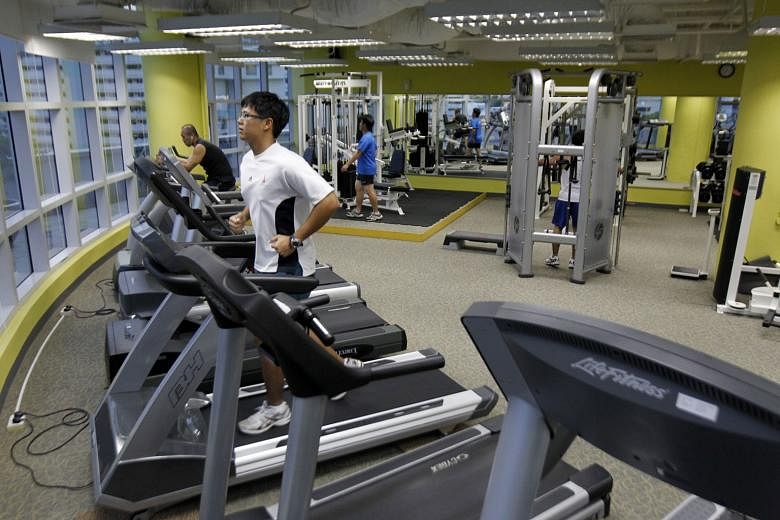For most of us, temptations are everywhere, from the dessert buffet to the online shoe boutique.
But a new study suggests that exercise may be a simple if unexpected way to increase our willpower and perhaps help us avoid making impulsive choices that we will later regret.
Self-control is one of those concepts that we all recognise and applaud but do not necessarily practise. It requires forgoing things that entice us, which, let's face it, is not fun. On the other hand, lack of self-control can be consequential for health and well-being, often contributing to problems like weight gain, depression or money woes.
Given these effects, scientists and therapists have been interested in finding ways to increase people's self-restraint. Various types of behavioural therapies and counselling have shown promise. But such techniques typically require professional assistance and have, for the most part, been used to treat people with abnormally high levels of impulsiveness.
There have been few scientifically validated options available to help those of us who may want to be just a little better at resisting our more devilish urges.
So for the new study, which was published recently in Behaviour Modification, a group of researchers at the University of Kansas in the United States began wondering about exercise.
Exercise is known to have considerable psychological effects. It can raise moods, for example, and expand people's sense of what they are capable of doing. So perhaps, the researchers speculated, exercise may alter how well people can control their impulses.
To find out, the scientists decided first to conduct a tiny pilot study, involving four men and women.
These volunteers, who had been sedentary and overweight, were told they would be taking part in an exercise programme to get them ready to complete a 5km race, and that the study would examine some of the effects of the training, including psychological effects.
The volunteers began by completing a number of questionnaires, including one that quantified their "delay discounting", a measure that psychologists use to assess someone's ability to put off pleasures now for greater enjoyments later.
It tests, for instance, whether a person would choose to accept $5 today or $15 a week from now. The delay-discounting questionnaire is generally accepted in research circles as a valid measure of someone's self-control.
The volunteers then undertook a two-month walking and jogging regimen, meeting three times a week for 45 minutes with the researchers, who coached them through the sessions, urging them to maintain a pace that felt difficult but sustainable.
Each week, the men and women also repeated the questionnaires.
Finally, a month after the formal training had ended, the volunteers returned to the university for one more round of testing. (Later, two of them also ran 5km races.)
The results were intriguing, the researchers felt. Three of the four participants had developed significantly greater self-control, according to their delay-discounting answers, and maintained those gains a month after the formal training had ended. But one volunteer, who had missed multiple sessions, showed no changes in impulsivity.
A four-person study is too small to be meaningful, though, so the researchers next repeated the experiment with 12 women of varying ages, weights and fitness levels.
The results were almost identical to those in the pilot study. Most of the women gained a notable degree of self-control, based on their questionnaires, after completing the walking and jogging programme. (In this experiment, they were told they were training for better fitness.) But the increases were proportional; the more sessions a woman attended or the more her average jogging pace increased, the greater the improvement in her delay-discounting score.
These gains lingered a month after the training had ended, although most of the women had tapered off their exercise routines by then.
The upshot of these results would seem to be that exercise could be a simple way to help people shore up their self-restraint, said Mr Michael Sofis, a doctoral candidate in applied behavioural science at the University of Kansas who led the study.
These two experiments cannot tell us, though, how exercise helps us to ignore a cupcake's allure.
But Mr Sofis said that many past studies have concluded that regular exercise alters the workings of portions of the brain involved in higher-level thinking and decision-making, which, in turn, play important roles in impulse control.
Exercise also may have more abstract psychological effects on our sense of self-control, he said.
It is, for many of us, a concentrated form of delayed gratification. Exerting ourselves during a workout is not always immediately pleasurable. But it can feel marvellous afterwards to know that we managed to keep going, a sensation that could spill over into later decision-making.
Of course, with only 16 participants, these experiments remained small-scale and limited, relying on a fundamentally artificial, mathematical measure of self-control.
The scientists did not, for example, track whether the volunteers became less impulsive in their actual daily lives.
Mr Sofis and his colleagues hope to conduct follow-up studies that will look at the real-world effects of exercise on self-control.
But for now, he said, these results suggest that normal people "can change and improve their self-control with regular physical activity".
NYTIMES

